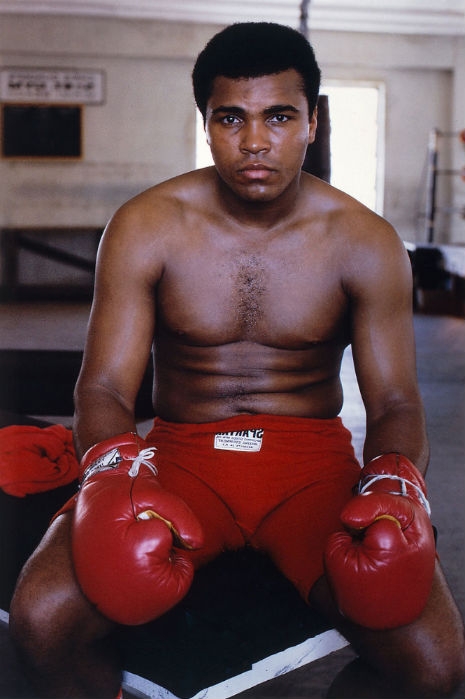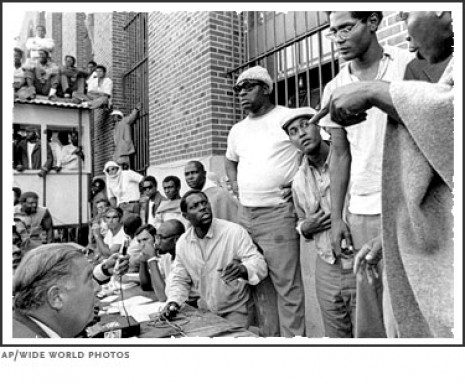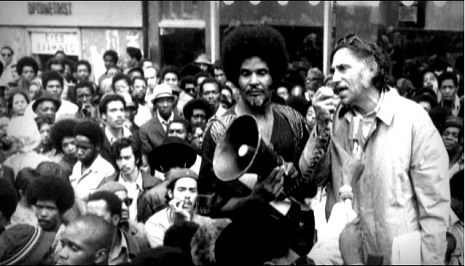
In July 1972, Muhammad Ali traveled to his ancestral homeland of Ireland at the invitation of Michael “Butty” Sugrue, who had put up the purse for Ali to fight Detroit contender Alvin “Blue” Lewis at Croke Park, in front of 25,000 fans. Ali won the fight with an eleventh round knockout.
It was The Greatest’s first visit to his maternal great-grandfather Abe Grady’s birth country, and he made a special point of visiting the Taoiseach (the Irish Prime Minister) Jack Lynch and the republican socialist politician Bernadette Devlin to discuss “The Troubles” in Northern Ireland. Ali also discussed the civil rights issues in the north of the country in a long TV interview with RTÉ’s Cathal O’Shannon. During this interview Ali also commented the brutal murderous events carried out by the authorities after the Attica prison riot.
On September 9th 1971, after hearing news of the execution of Black Panther George Jackson at San Quentin, around 1,000 Attica inmates rioted and seized control of the prison. The prisoners had taken hostage 42 guards and demanded political rights and better conditions. Negotiations progressed until September 13th, when at 09:46 hours tear gas was hurled into the siege area which was followed by two full minutes of non-stop shooting by members of the NYPD and troops from the National Guard. Forty-three were killed—33 inmates and ten staffers.
Having explained the events of the slaughter, Ali then recited his poem:
Better far from all I see
To die fighting to be free
What more fitting end could be?Better surely than in some bed
Where in broken health I’m led
Lingering until I’m deadBetter than with prayers and pleas
Or in the clutch of some disease
Wasting slowly by degreesBetter than of heart attack
Or some dose of drug I lack
Let me die by being BlackBetter far that I should go
Standing here against the foe
Is the sweeter death to knowBetter than the bloody stain
On some highway where I’m lain
Torn by flying glass and paneBetter calling death to come
Than to die another dumb
Muted victim in the slumBetter than of this prison rot
If there’s any choice I’ve got
Kill me here on the spotBetter far my fight to wage
Now while my blood boils with rage
Lest it cool with ancient ageBetter vowing for us to die
Than to Uncle Tom and try
Making peace just to live a lieBetter now that I say my sooth
I’m gonna die demanding truth
While I’m still akin to youthBetter now than later on
Now that fear of death is gone
Never mind another dawn.
Ali returned to Ireland in 2003, when he took part in the opening ceremony for the Special Olympics in Dublin, and again in 2009, when he was given Honorary Freeman of the town of Ennis, birthplace of his great-grandfather Abe Grady. A film When Ali Came to Ireland documented the boxer’s trip and the “huge impact [it had] on those Ali met and, some say, on the man himself.”
Via Open Culture.







